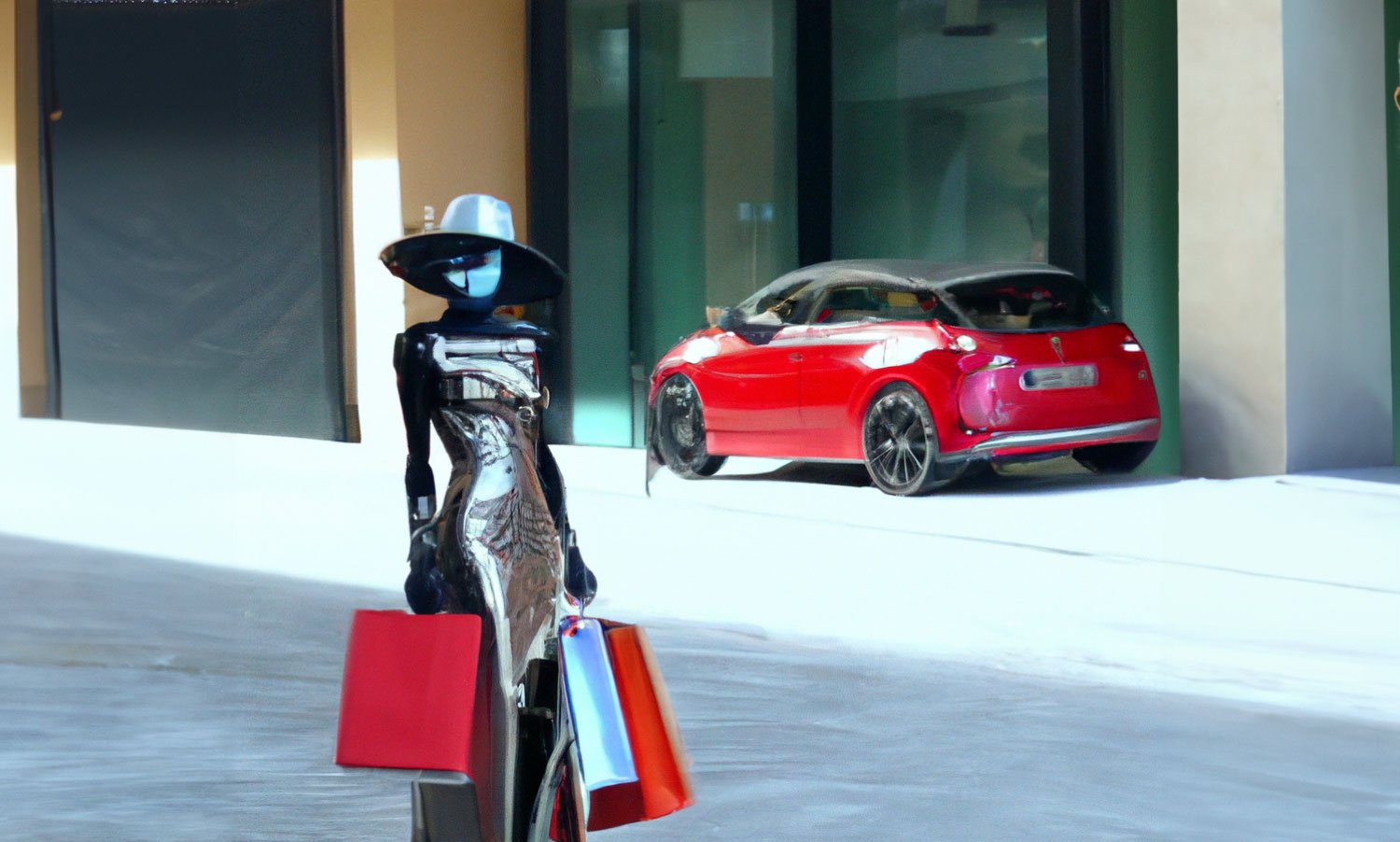Artificial Intelligence and Personalisation in the Luxury Industry

Chairman LUXONOMY™ Group
Artificial Intelligence and Personalisation in the Luxury Industry
The luxury industry has always been characterised by offering exclusive and personalised products and services to its customers. However, with advances in artificial intelligence (AI) technology, this personalisation has been taken to a completely new level. AI has revolutionised the way luxury brands interact with their customers and offer them unique experiences tailored to their individual needs and preferences. In this article, we will explore how artificial intelligence is transforming the luxury industry and how brands are utilising this technology to provide an exceptional customer experience.
The Importance of Personalisation in the Luxury Industry
Personalisation has always been a key element in the luxury industry. Luxury customers expect brands to offer them exclusive products and services tailored to their individual tastes and preferences. Personalisation not only creates a stronger emotional connection between the brand and the customer but also allows brands to differentiate themselves from the competition and provide added value.
Personalisation in the luxury industry used to be a manual and laborious process. Customers had to provide detailed information about their preferences and brand experts worked to create personalised products and services. However, with the advent of artificial intelligence, this process has become much more efficient and scalable.
Artificial Intelligence and Personalisation in the Luxury Industry
Artificial intelligence has enabled luxury brands to collect and analyse large amounts of data about their customers quickly and accurately. This has led to a deeper understanding of individual customer preferences and has allowed brands to provide real-time personalised experiences.
Personalised Recommendations
One of the most common ways luxury brands use artificial intelligence to personalise the customer experience is through personalised recommendations. Brands collect data on a customer’s previous purchases, their style preferences, their social media interactions, and other relevant factors to create personalised product and service recommendations.
For example, the luxury fashion brand Burberry uses artificial intelligence to offer its customers personalised recommendations on its website and mobile applications. Using machine learning algorithms, the brand analyses a customer’s purchase and browsing data to offer them products that fit their individual style and preferences. This not only improves the customer experience but also boosts sales and brand loyalty.
Virtual Assistants and Chatbots
Another way artificial intelligence is transforming the luxury industry is through virtual assistants and chatbots. These AI systems can interact with customers naturally and offer them personalised recommendations, answer questions, and provide real-time assistance.
For example, the luxury car brand Mercedes-Benz has developed a virtual assistant called “Mercedes me” that uses artificial intelligence to interact with customers and offer them personalised services. Customers can schedule service appointments, get travel recommendations, and receive updates about their vehicle, all through a chatbot interface.
Benefits of AI-Driven Personalisation
AI-driven personalisation offers a number of benefits to both luxury brands and customers. Some of these benefits include:
- Exceptional customer experiences: Personalisation allows luxury brands to offer unique experiences tailored to the individual needs and preferences of each customer.
- Improved brand loyalty: Personalisation creates a stronger emotional connection between the brand and the customer, increasing long-term loyalty.
- Increase in sales: AI-based personalisation has been shown to boost sales by offering customers products and services that fit their individual tastes and preferences.
- Optimisation of efficiency: Artificial intelligence allows luxury brands to collect and analyse large amounts of data quickly and accurately, improving operational efficiency.
Challenges and Ethical Considerations
While AI-driven personalisation offers numerous benefits, it also raises challenges and ethical considerations. Some of these challenges include:
- Data privacy: The collection and use of personal data raise concerns about customer privacy and security.
- Fairness and algorithmic biases: Artificial intelligence algorithms can be biased and perpetuate social and cultural inequalities.
- Technology dependence: Luxury brands need to balance the use of artificial intelligence with human interaction to maintain an authentic emotional connection with customers.
Conclusions
Artificial intelligence is transforming the luxury industry by enabling exceptional real-time personalisation. Luxury brands are using artificial intelligence to offer personalised recommendations, interact with customers through virtual assistants and chatbots, and improve operational efficiency. However, there are also challenges and ethical considerations associated with AI-driven personalisation.
Share/Compártelo
- Click to share on LinkedIn (Opens in new window)
- Click to share on WhatsApp (Opens in new window)
- Click to share on Facebook (Opens in new window)
- Click to share on Twitter (Opens in new window)
- Click to share on Threads (Opens in new window)
- Click to email a link to a friend (Opens in new window)
- Click to print (Opens in new window)
- More
Related
Discover more from LUXONOMY
Subscribe to get the latest posts sent to your email.















